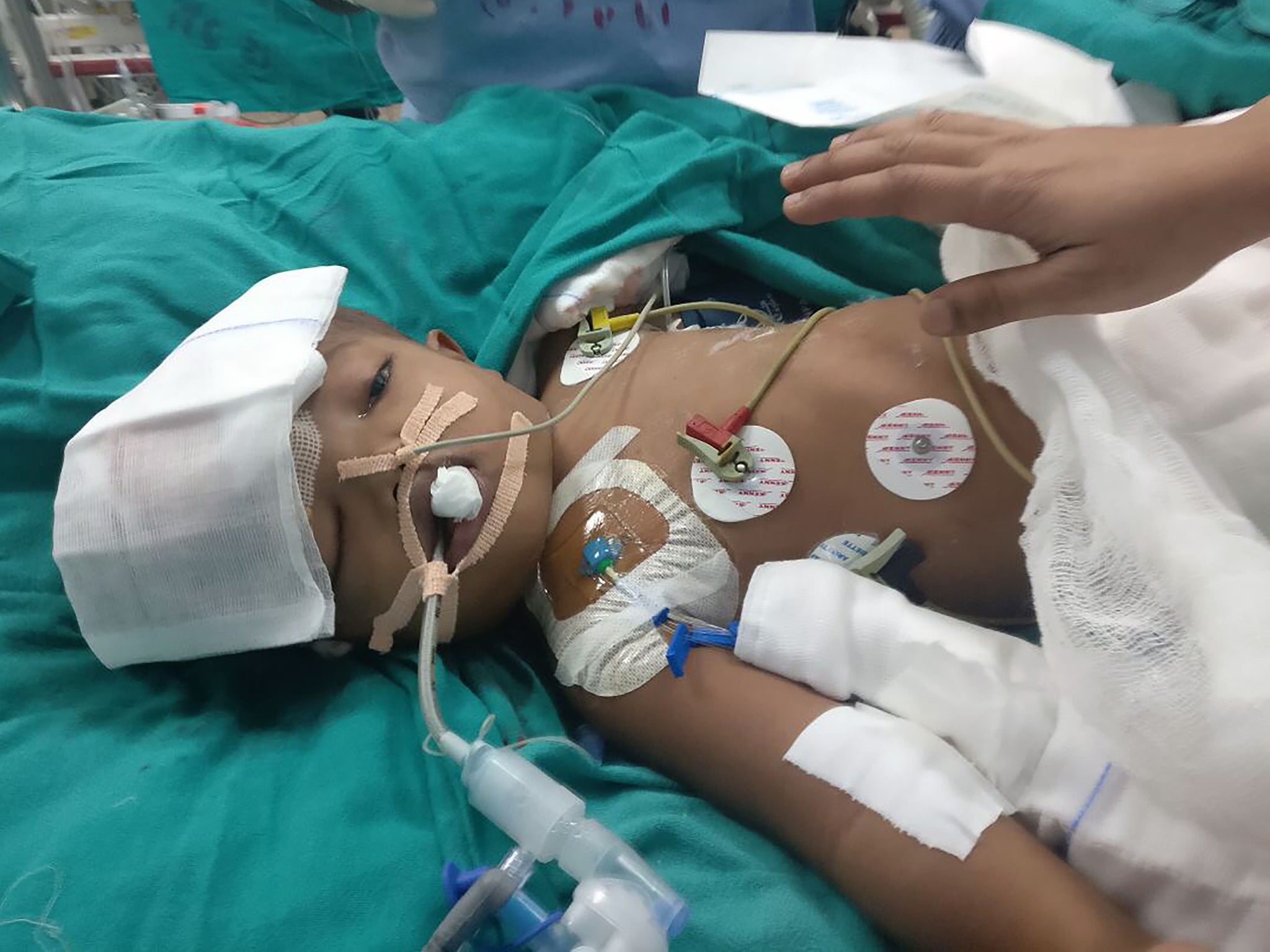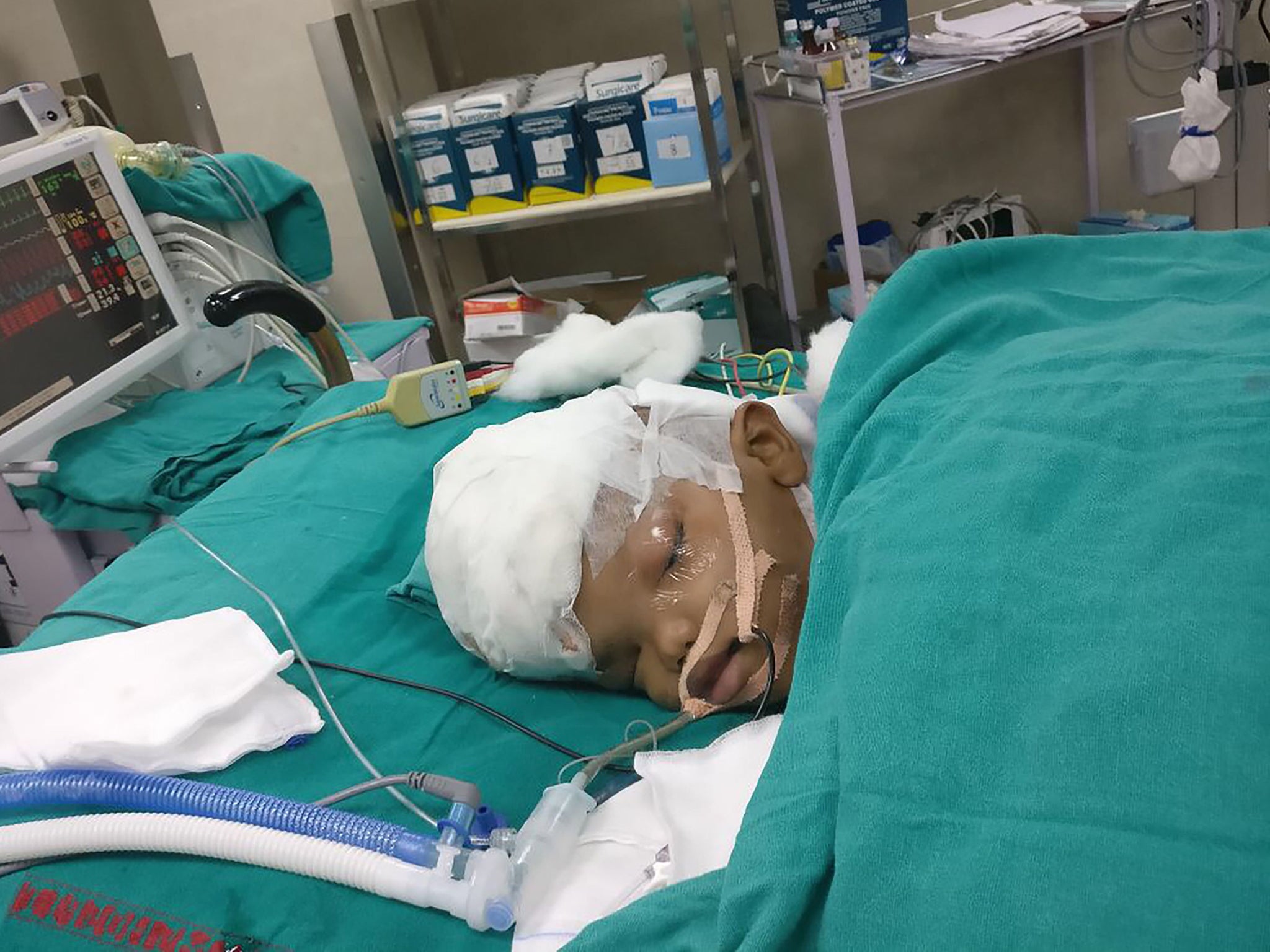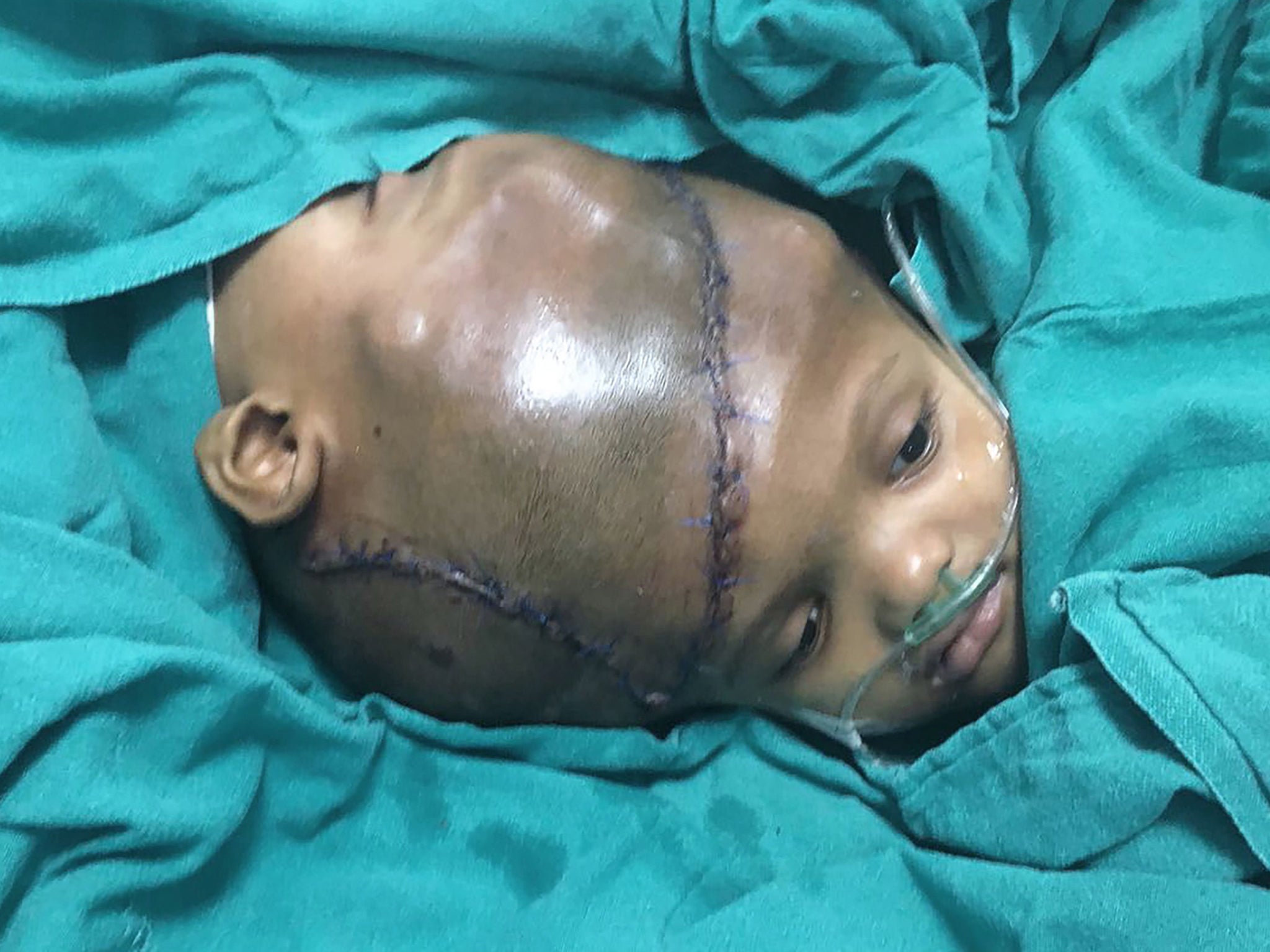Twins joined at the head separated by surgeons in India in landmark operation
Team of 30 doctors carry out 16-hour procedure on the boys

Your support helps us to tell the story
From reproductive rights to climate change to Big Tech, The Independent is on the ground when the story is developing. Whether it's investigating the financials of Elon Musk's pro-Trump PAC or producing our latest documentary, 'The A Word', which shines a light on the American women fighting for reproductive rights, we know how important it is to parse out the facts from the messaging.
At such a critical moment in US history, we need reporters on the ground. Your donation allows us to keep sending journalists to speak to both sides of the story.
The Independent is trusted by Americans across the entire political spectrum. And unlike many other quality news outlets, we choose not to lock Americans out of our reporting and analysis with paywalls. We believe quality journalism should be available to everyone, paid for by those who can afford it.
Your support makes all the difference.Surgeons have separated a pair of twin boys who were conjoined at the head in what they have hailed as a landmark operation.
The 16-hour surgery on two-year-old brothers Jaga and Kalia was the first of its kind in India. A team of 30 carrued out the operation at a state-run hospital.
The boys, from a village in the eastern Orissa state, were joined at the head – a condition known as craniopagus. They born with shared brain tissue and blood vessels.
Surgeons separated these in a procedure which took more than 18 hours.
They said the most challenging aspect of the surgery was to provide skin that could cover both sides of the brain for the children.
They have now been moved to an intensive care unit and the next steps will involve reconstructing their skulls.
"Both the children have other health issues as well. While Jaga has heart issues, Kalia has kidney problems," neurosurgeon A K Mahapatra told the BBC.


"Though initially Jaga was healthier, now his condition has deteriorated. Kalia is better," he added.
Craniopagus occurs in one in three million births and 50 per cent of those affected die within 24 hours.
Join our commenting forum
Join thought-provoking conversations, follow other Independent readers and see their replies
Comments